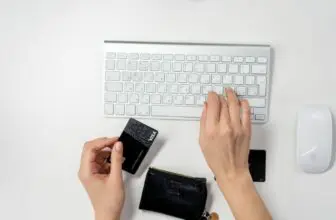In the digital age, transactions are happening faster than traditional methods. Utility payments to salary transfers now take place faster than imagination. No more standing in long queues or suffering from time loss. Everything happens digitally these days in just a few clicks, from staff recruitment to important decisions announcement across the corporate ladder.
But few of us know the dark side of this digital revolution. One wrong click can land you in a financial mess. Whether you are regular in online banking or an occasional user, you must have functional knowledge of safety measures while making a digital transaction. Basic awareness about virtual scams can help you prevent a personal financial tragedy.
Here are the five most effective ways to safeguard your digital identity and guard you against online fraud and monetary theft.
1. Always Install and Use Verified Apps
Mobile transactions are the new face of the Internet revolution. Even though cash is still the king among most urban consumers, mobile banking has seen a surge in usage over the last few years. Digitally active consumers are making mobile banking their first preference. They are becoming a tool for small ticket transactions like utility bills, fund transfers of small amounts, bill payments, shopping purchases, or investments.
With a plethora of apps, doing safe mobile banking is a challenge. Downloading the right app(s) is one essential step online consumers must now adopt for their fund security. Every time you download a financial app on your mobile or any other device, make sure it is a verified app and complies with security and privacy requirements. Ensure the app also contains an identity authentication feature to prevent unauthorized access.
Moreover, enable app verification on your device and install anti-malware software to avoid installing unverified third-party apps.
2. Browse Authorized Websites
A secure browser prevents unauthorized third-party activity when you are surfing the web. It is a critical tool to protect your privacy and keep your data secure. Unless properly arranged, most browsers contain private information at exploitation risk from various third parties. Here are some personal data liable to risk:
- Browsing history includes the websites you visit
- Login credentials containing usernames and passwords
- Autofill information, including name, addresses, phone numbers, etc.
- Trackers and cookies are commonly used for marketing and advertising purposes. They contain a history of the user’s actions on multiple sites. Hence, hackers can exploit and misuse them to track the user’s behavior.
In addition, stay away from using fraudulent websites that may look professional or carry the same domain name as the original one in the URL. Pay attention to your browser’s address bar and look for the lock icon and “https://” before “www.”
Refrain from “private” or “incognito” browsing, as it won’t protect you. Third parties can still track your activities, as your IP address will remain visible. Go for secure browsers that are fast, secure, and privacy-focused and block all third-party storage, such as Google Chrome, Firefox, Chromium, Brave, and Tor.
3. Never Compromise on Security Software
Digital devices like mobiles, PCs, and laptops are essential gadgets for modern-day living. Most professionals and homemakers using digital payments want a safe payment interface; however, only a few know their mobile and computer security software, operating system, and web browser.
From time to time, upgrade your IT-enabled devices like laptops, PC, or mobile phones to prevent online mis-happenings and digital frauds. Set up strong passwords using a combination of lowercase and uppercase letters, numbers, and special characters.
Furthermore, change your passwords regularly and do not share your passwords, OTP (one-time password), and PIN (personal identification number) with anyone, even if the suspect claims to be from the bank.
4. Stay Watchful When Making Card Payment
Credit and debit cards are beneficial financial tools in everyday life. However, new card users can commit irreversible errors in plastic currency usage that may harm their bank balance. As a first-time or regular card user, make a note of the following things to avoid monetary loss:
- Do your card payment yourself
- Never share or keep your credit/debit card with your friends or family
- When completing a card payment, ensure the machine you enter your card PIN is in your view. Also, double-check the amount before entering the PIN
- Ensure that the POS machine at the purchase outlet is authentic.
Besides, card-cloning practice by cybercriminals is becoming common these days. Remain alert when using your card at the point of sale to avoid card skimming by online burglars.
5. Avoid Checking Phishing Mails, Phone Calls, or SMS

Phishing refers to online scams that ‘capture’ your personal and financial information, such as bank account information, credit card numbers, passwords, or other personal information. Phishing messages come from multiple sources, including email, SMS, phone call, text messages, advertisements, and social media messages; they even claim to come from a legitimate source (online payment service, bank, software company, or reputable institution).
Phishing risks involve virus infections, loss of personal data, access and misuse of your financial accounts, and compromise of bank accounts. Use email filtering software to detect and block spam messages, phishing, and malware. Never immediately update your personal information, as it can put you to online theft.
Bottom Line
Thousands of bank account holders are falling prey to internet-enabled banking scams globally. Hence, it’s critical to implement ways to secure your digital transactions. Follow these basic measures to protect yourself from becoming an online fraud victim. And, if you are a business owner, make sure your remote employees are taking the best security measures as well.






